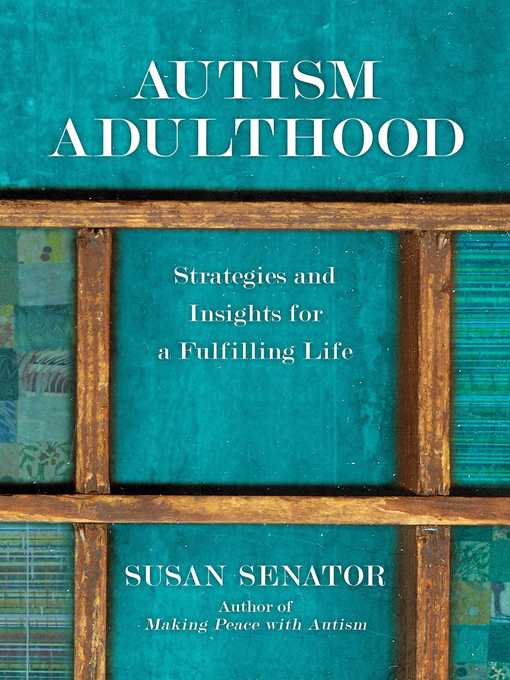
Autism Adulthood
Strategies and Insights for a Fulfilling Life
استراتژیها و بینشهایی برای یک زندگی کامل
کتاب های مرتبط
- اطلاعات
- نقد و بررسی
- دیدگاه کاربران
نقد و بررسی

March 1, 2016
A wide-ranging memoir and guide to autism in adulthood. There is undoubtedly disagreement regarding the terminology used in conversations related to autism. "Person-first" language decreases the tendency toward defining people by their disabilities; thus, "autistic people" becomes "people with autism." Others prefer being called simply "autistic," arguing that they are in fact defined by their autism and should embrace it as a part of their personalities. Senator (The Autism Mom's Survival Guide (for Dads, too!), 2010, etc.) uses both terms, noting the importance of keeping everything on the table as a child moves through adolescence into adulthood. There are numerous books about caring for children with autism, but the resources about adulthood autism are not as common. The decisions become difficult in new ways: should the adult live with parents or in a residential support home? How do you address the feeling of abandonment, that you're essentially handing over control of his well-being to strangers, often underpaid and all too frequently willing to do the bare minimum to avoid losing their jobs? Senator doesn't attempt to completely untangle the laws, guidelines, and treatment options, but she uses her own story--the author's son, Nat, has autism and has recently reached adulthood--to offer qualitative insights about navigating the social service systems. The author writes openly about a diverse variety of experiences--e.g., entrusting guardianship to a sibling in the case of a parent's death; the common struggles of adulthood as experienced through the lens of autism; finding the best possible option for a place a child can call his own and doing so in a way that empowers him to be successful when he leaves the care of his parents. The challenges are ongoing, and Senator is honest in acknowledging the limits of any insights one might glean from her son's story. That acknowledgement, however, serves the book in its shared solidarity, of reaching out to always ask questions. As an emotional resource, her book is excellent.
COPYRIGHT(2016) Kirkus Reviews, ALL RIGHTS RESERVED.

Starred review from March 1, 2016
Senator (Making Peace with Autism) hits the nail on the head once again with this work that shares her continuing journey as the parent of an adult with autism. Parents often worry about who will care for their children should they no longer be able, but that concern lessens once children are grown and out on their own. Parents of children with autism, however, must address their fears and seek answers to such a scenario before and into their child's adulthood. Senator tells her experience helping her son, Nat, find a living situation that will support his needs and allow him to be a part of the community. She also relates stories of 30 other families, and the solutions they have found for their children with autism. By explaining how she and others in similar situations manage on a daily basis, the author encourages parents to seek new resolutions in addition to available options for their child. Lists of resources and planning ideas are included. VERDICT Straightforward and to the point, Senator's book addresses many parents' worst fears and inspires them to step up and create a situation and a community that can support their child in their absence. This is a must-read for any parent with a child on the autism spectrum as well as caregivers, siblings, and extended family. Suitable for any library with parenting and autism collections.--Lisa Jordan, Johnson Cty. Lib., Overland Park, KS
Copyright 2016 Library Journal, LLC Used with permission.

























دیدگاه کاربران